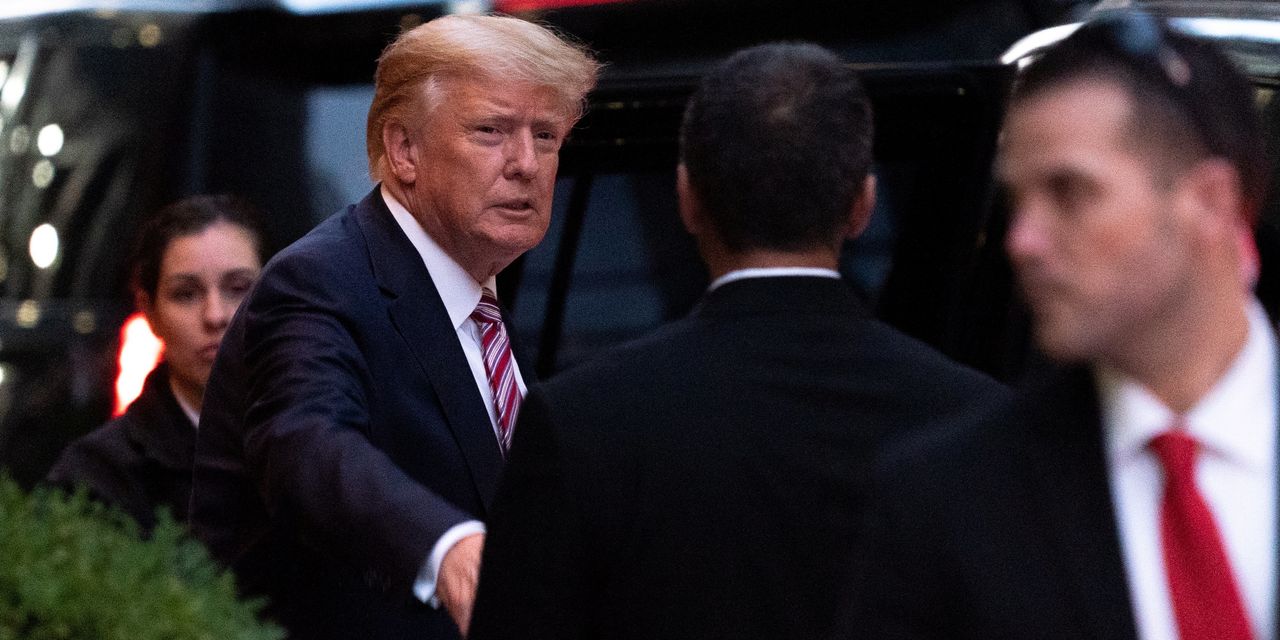
Investors on Thursday piled into shares of the special-purpose acquisition company taking former President Donald Trump’s new social-media platform public, igniting a buying frenzy reminiscent of the SPAC craze from early this year.
Shares of Digital World Acquisition Corp. more than quadrupled to $45.50 in the first trading session following the deal announcement. Trump Media & Technology Group said late Wednesday it would combine with the SPAC and soon launch a new social network called Truth Social. The deal values the Trump media company at about $875 million, including debt.
The unveiling of the new company comes after Mr. Trump’s access to several social-media platforms including Twitter Inc. and Facebook Inc. was restricted following the Jan. 6 assault on the U.S. Capitol. He held discussions with a number of different platforms throughout the year to find a new online megaphone. Mr. Trump had nearly 89 million followers on Twitter.
Digital World Acquisition and its stock ticker, DWAC, were trending on some social-media platforms Thursday, with traders rushing to buy the shares.
Such sharp share-price increases for companies going public with SPACs were common early this year, when such stocks were popular among day traders. The big gains have become less common in recent months with many companies that go public this way struggling to meet their growth targets.
Also called a blank-check company, a SPAC such as Digital World Acquisition is a shell company that raises money and trades on a stock exchange to merge with a private firm such as Mr. Trump’s and take it public. The private company then replaces the SPAC in the stock market. SPAC mergers have become popular alternatives to traditional initial public offerings, especially for startups that can make business projections. Those aren’t allowed in typical IPOs.
Still, many stocks that soared after deals were announced or even completed have since tumbled, sticking individual investors with losses while many company insiders are protected through unique incentives.
Many other social-media sites catering to conservatives have emerged in recent years, including Parler, Gab and Gettr, a free-speech-focused platform launched by former Trump adviser Jason Miller earlier this year.
Some of them have struggled to balance their free-speech ambitions with abiding by their technology partners’ terms of service.
Parler, which was founded in 2018, built a big following after the 2020 election, but was stopped in its tracks in the wake of the Jan. 6 assault on the U.S. Capitol. Apple Inc. removed Parler from its app store and cloud-computing giant Amazon Web Services booted it from its servers amid concerns that Parler wasn’t able to effectively moderate threats of violence on its platform. Parler has since returned to Apple’s app Store.
Gab, which was founded in 2016 with the explicit aim of being a haven for free commentary, went offline for more than a week in the fall of 2018 after a man opened fire at a Pittsburgh synagogue shortly after posting anti-Semitic messages on Gab. The company was quickly dropped by its web-hosting firm, domain registrar and payment processors. Gab eventually found a new digital home, and said at the time it prohibited calling for acts of violence against others.
Gab said Thursday in a statement that it supports Mr. Trump’s new network and that users can still follow the former president on his reserved Gab account.
Parler didn’t respond to requests for comment.
Write to Amrith Ramkumar at [email protected]
Copyright ©2021 Dow Jones & Company, Inc. All Rights Reserved. 87990cbe856818d5eddac44c7b1cdeb8
Appeared in the October 22, 2021, print edition as ‘Trump-Tied SPAC Quadruples in Price.’








.jpg?w=330&resize=330,220&ssl=1)